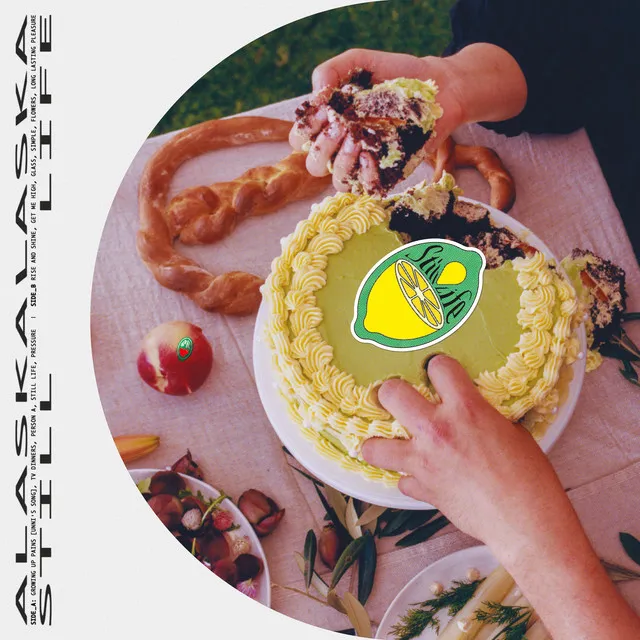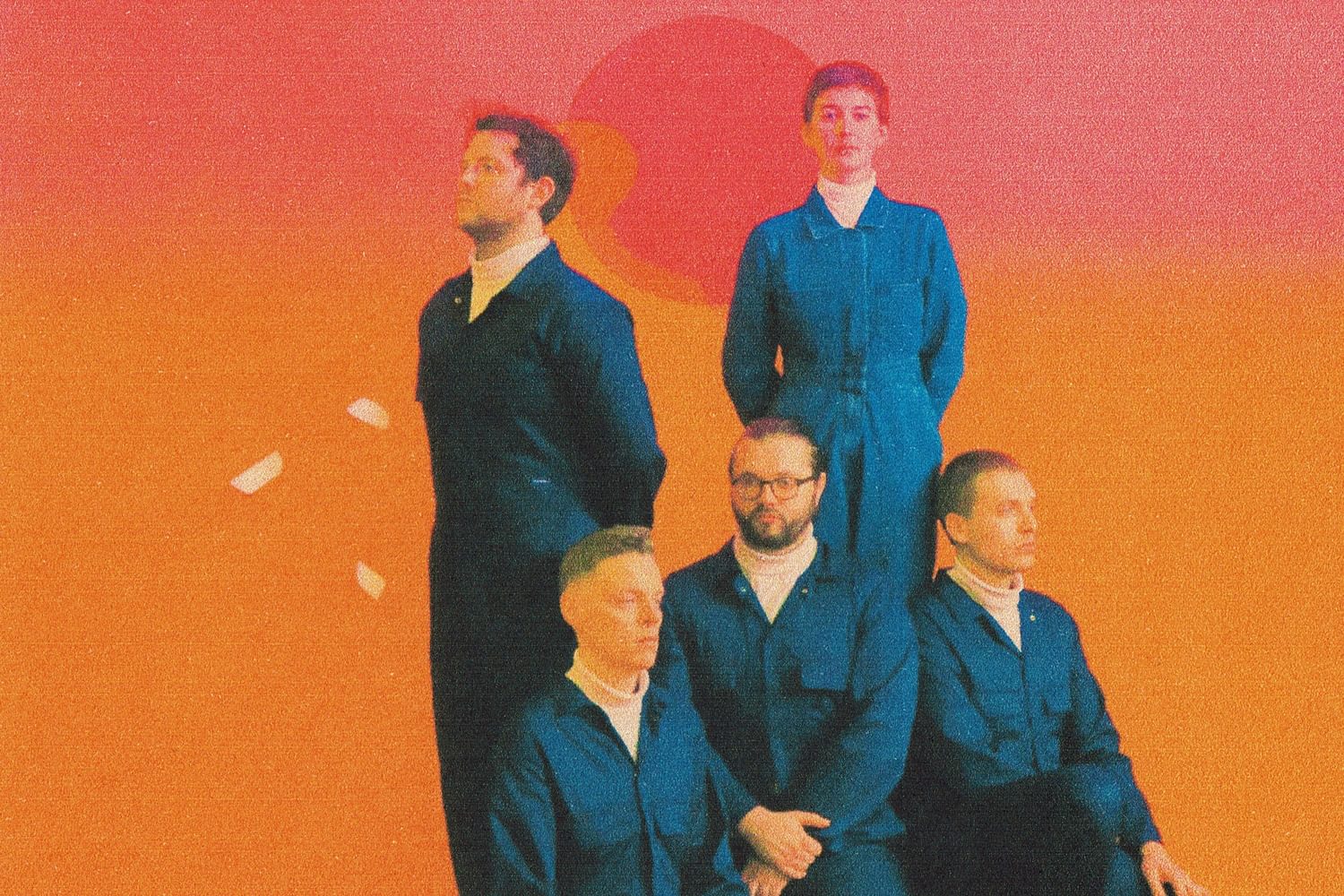
Interview Join the dots: ALASKALASKA
The London jazz-pop five-piece present their dreamy debut album, but it comes along with the bite of social commentary.
Ever since they released their debut singles ‘Bitter Winter’ and ‘Familar Ways’ mid-way through 2017, London’s ALASKALASKA have been slowly but surely sending out a slew of dreamy jazz-pop gems from deep within the flourishing scene south of the river. A split of three pop-leaning songwriters and a trio of - as vocalist Lucinda Duarte-Holman referred to them in a DIY interview from around those debut singles - “jazz boys”, there’s a wonderful duality to the band’s sounds, tethered to earth by their catchy choruses and song structures, but being tugged in fresh, interesting new directions by their freewheeling counterparts on keys, drums and sax.
Now trimmed down to a five-piece, this week they emerge with their debut album ‘The Dots’, a record that furthers this promise significantly, and adds lyrical bite to their daydreaming. A record that’s brought together by the idea of “constantly comparing yourself to other people, whether it’s people on TV, or social media” as bassist/producer Fraser Rieley has previously said, the album manifests its message in many different ways (speaking of PMS and the “monthly, cyclical ebbs and flows (pun intended) of my emotional and physical well being” on ‘Moon’ and demanding more from the government on ‘Bees’) but it all comes back to that core principle, of listening more, demanding better, and taking a second to look around, take a deep breath, and reconsider everything around you.
In advance of the album, we met up with Lucinda and Fraser to dig more into the message that anchors ‘The Dots’, and why sometimes the roughest takes are the best.
Your debut album is almost here - you've changed a lot as a band but do you still see it as a succinct representation of ALASKALASKA up until now?
Lucinda Duarte-Holman (vocals, guitar): Yeah, I do. The album was a lesson, but the EP we did was more so. With the EP, it was a case of just needing to do it. We had very limited supplies and space, and we didn't yet have a clear vision of what we wanted us to sound like. We just had songs and recorded them. Now when I listen back, it's like seeing a high school photo of yourself.
Fraser Rieley (bass): It feels more formulaic, just because we had these songs and didn't know how they'd end up. We tested the water, and they just ended up as they are. With the album, because we knew we were going to do it ourselves, we knew it was only going to be as good as we could possibly make it. We decided not to worry too much about what another producer would do, or what would fit into music at the moment. We had a firmer idea, and think it sums us up.
Lucinda: It gives a little bit of everything, and a little taste of every flavour that we can offer at the moment.
The first time we met, a few years back, we touched upon the two 'sides' of the band, with the poppy stuff and the jazzy accompaniment - do you feel like you've accentuated that, or got closer as a unit?
Lucinda: The lines sort of met in the middle, and now it's this really comfortable position: 'There's room for you here, and that gives us room to push that other thing a bit'. We understand what everyone's doing, and where there's space for each other, whereas before it was more of a case of saying 'Aaaand here's the jazzy sax part!'. It's all merged and had a nice lovechild.
Fraser: It's matured. A nice musical cheese.
A lot of the album used recordings from demos or first recordings - was it a deliberate decision to leave things a bit rough'n'ready?
Fraser: Yeah. It's fun [to be in a 'proper' studio], and you learn a lot from doing it, and it's cool being able to set up and play live and do whatever you want in a nice expensive room, 'cause it's a fun day out, but I don't think that gets the best results necessarily, unless it's a formulaic, non-creative recording day... unless you're Bono and you can afford to be there all the time and play with all the equipment, but every time we did that it just became a bit sterile. You feel a bit intimated as well, and don't feel like you have as much creative control, because you hold back a bit, thinking 'Oooh, can we use... that thing over there?'. But when you're in a small space and everything is yours for a few weeks, you can just do what you want.
Lucinda: We were pretty sure that we wanted to have a 'live' roughness to it. We all wanted to be able to actually hear a real drum. For example, I quite like the way that my voice sounds through an iPhone speaker. I don't like the really crisp sound of an expensive microphone, and a producer would probably shoot me for saying that, but just having the option and knowing that's what we like, and not having anyone tell us that we must use other things instead.
"I don't like to sing about something that I don't think is important."
— Lucinda Duarte-Holman
Lyrically, it feels like there's a lot of interesting, often heavy points touched on but it feels in juxtaposition to the quite upbeat, light music - is that intentional?
Lucinda: It kind of is intentional, but I like the idea of the song having a deeper meaning when you actually listen to the lyrics, but then the music is quite uplifting, and can make you forget about your praaaablems! Lyrically, I don't like to sing about something that I don't think is important, or that I don't feel really strongly about, otherwise it just feels really false and fake, and that's something that, if I had to [write that way], I'd just say 'Nah, you're alright, I'm not gonna be in music anymore.'. It's nice having the two, and I think we've got a good balance about it.
Is there an overarching theme that you see in the lyrics of the record?
Lucinda: Definitely. The songs are about me! It's about meeee! No, it's about different aspects of the way I see myself, and where my place is in the world, and me looking at other people and wondering how they're feeling. It's all about identity politics, and although 'Bees' sounds really political - and it is - it's about a book that I read that was talking about consumerism and how we got there and what went wrong, and the things that we can change about ourselves in order to move forward. I was thinking of myself as a consumer, and we're just trapped in this consumerist world. It's really hard to get away from it. Whereas with 'Moon', it's a totally different thing, but about PMS and my struggle with that. It's all about how I reflect myself out into the world, and the internal thoughts of that reflection. There's a lot of themes of being behind a mask, or being put in a box, and you see that with the artwork as well, trying to tie it all in.
It seems like you feel very strongly about the messages that anchor the album - is there a particular message that you want to hammer home with it?
Lucinda: I want people to actually listen to the words and what I'm talking about, and actually think about it. There's topics about love and depression and the world, and they're all quite rounded topics, but I also want people to enjoy it, and have fun with it, and be surprised, and find things weird, and enjoy that weirdness.
'The Dots' is out 3rd May via Marathon Artists.
Read More
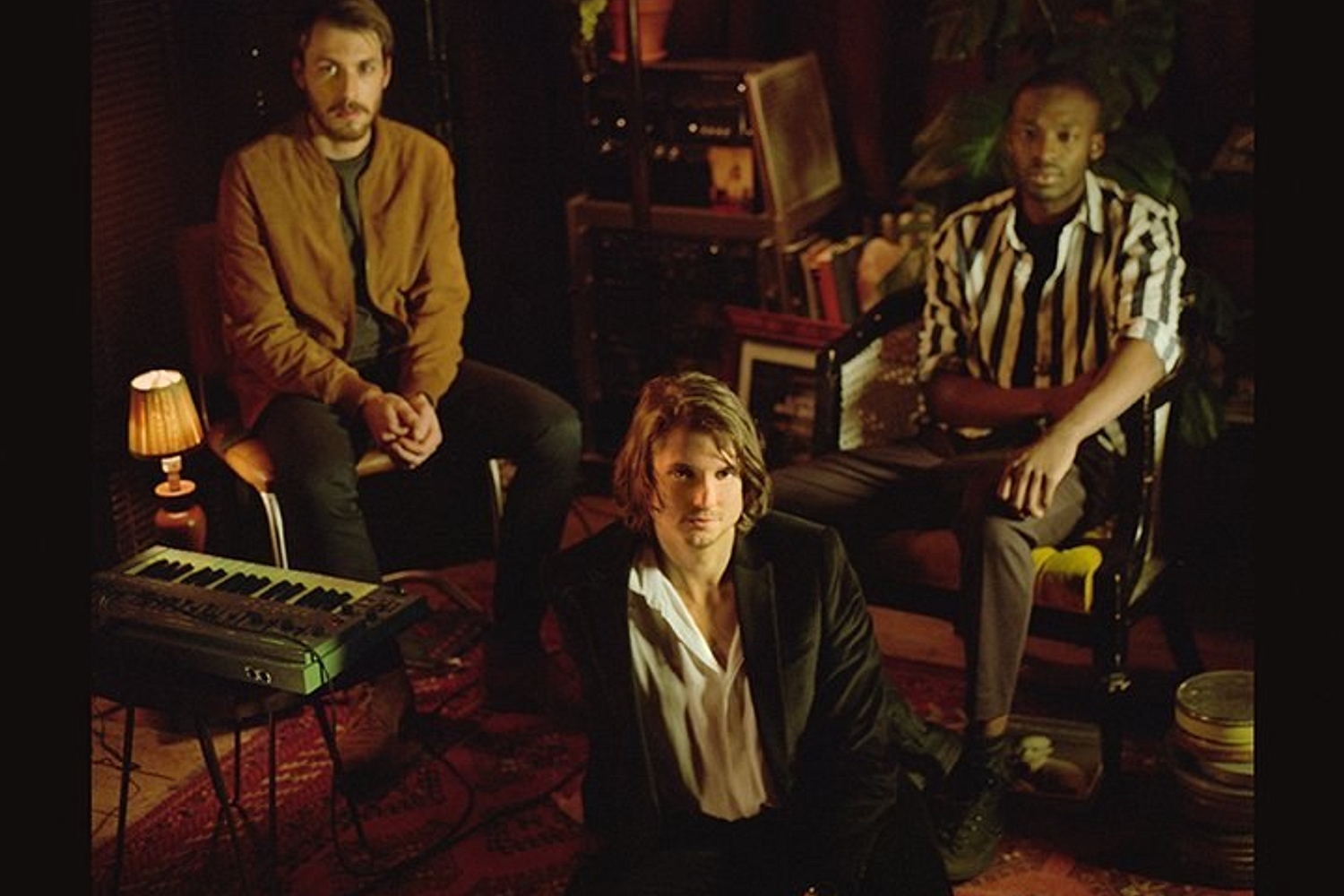
ALASKALASKA - Still Life
3 Stars
There’s a disconnect; where previously the group layered sounds to project a kind of warmth, here even the post-punk stabs of ‘Rise and Shine’ lack impact.
14th October 2022, 12:00am
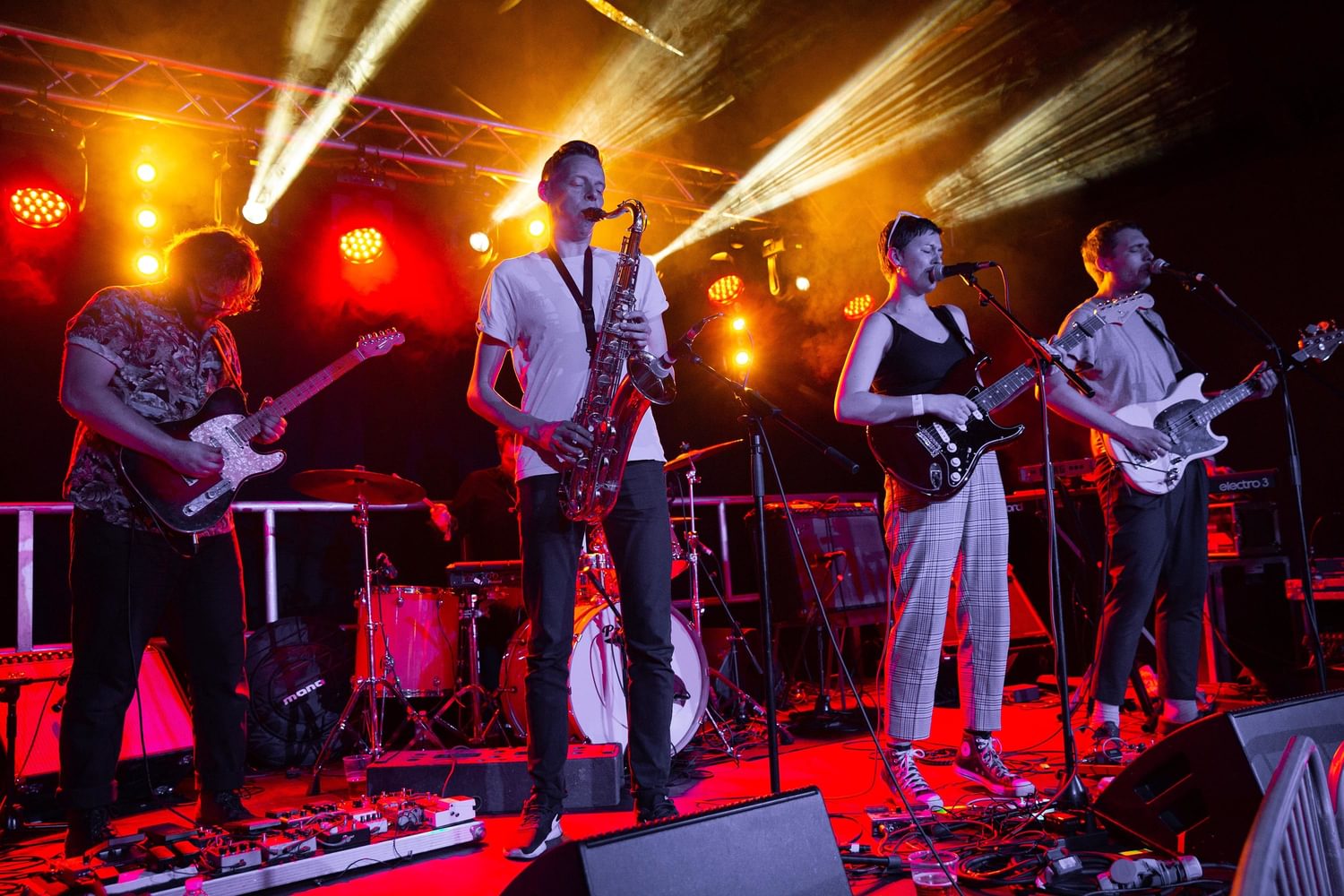
ALASKALASKA announce UK shows, share video for ‘Sweat’
The band will also be heading out on the road with Hot Chip at the end of the year.
23rd July 2019, 12:00am
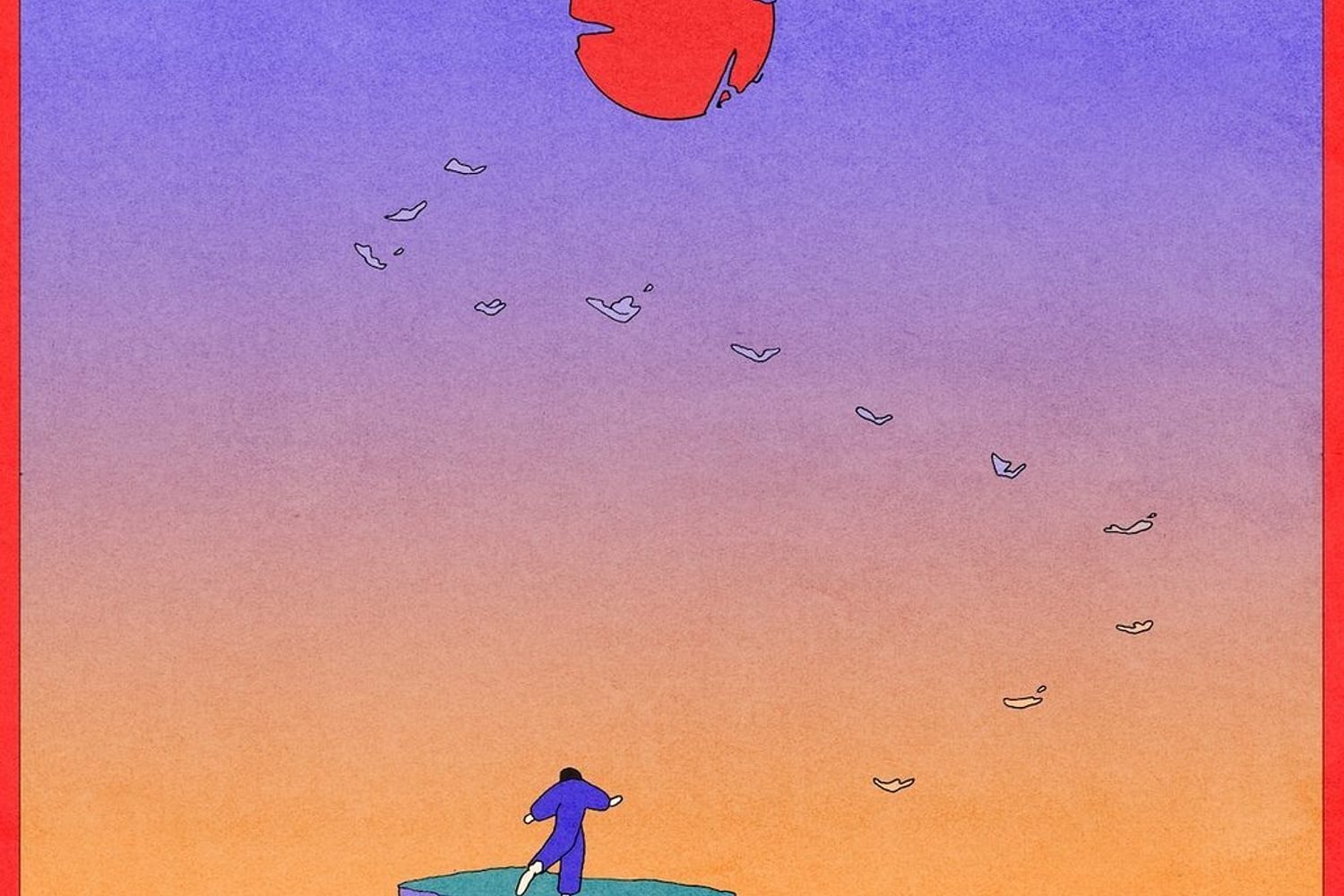
ALASKALASKA - The Dots
4 Stars
A joy to experience.
3rd May 2019, 7:57am

ALASKALASKA share animated video for ‘Tough Love’
The band's debut album 'The Dots' is out this week.
29th April 2019, 12:00am
With Bob Vylan, St Vincent, girl in red, Lizzy McAlpine and more.
